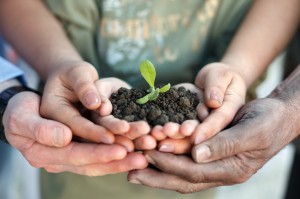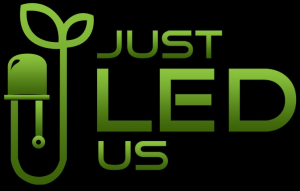Organic Versus Conventional
In the ever growing debate of organic versus conventional there are many factors that come into play when deciding which is better.
Organic Gardening
Organic gardening is the growing and cultivating of plants without the use of synthetic or chemical pest control, weeding, or fertilization, as well using organic seeds and/or seedlings.
Conventional Gardening
Conventional gardening uses synthetic fertilizers and pesticides to enhance and control the growing environment as well as using conventional seeds and seedlings that may or may not be genetically modified.
Organic gardening is eco-friendly as only natural sources that shouldn’t cause any harm to the earth, soil or waterways are used. Organic fertilizer can actually improve the quality of your soil, especially in cases where the soil may be ‘tired’. Conventional fertilizers just give an artificial and temporary burst of nutrients to your plants.
It has been shown in many studies (for example) that organically grown food is higher in nutrients/nutrient dense in comparison to conventionally grown. Of the organically grown crops that were studied, the results showed that they had significantly higher levels of the 21 nutrients analyzed. To name a few, both magnesium (29%) and iron (21%.), were higher in the organically grown crops.
In some ways, growing organically can be less expensive, if you factor in all of the benefits that you will reap long term. Some of the ways it can be less expensive in the short term are: you can use compost or soil mixed with horse manure (only horses that have been fed grass and/or organically grown hay) for fertilizer; you can plant specific flowers (ie. Petunias, Nasturtiums) that will help ward off harmful bugs; you can make your own natural insecticidal soap; and weed control consists of actually pulling the weeds as well as adding mulch, stones, or grass clippings.
In the long term you will have healthier soil, greater yield (greater than conventional), your own cache of seeds, and in general, plants that are stronger and more nutrient dense. Which means you will be eating food that is the best you can possibly get for a fraction of what it costs to buy at the grocery store. It’s win/win really.
Obviously, the only real benefit to conventional gardening is less workload. The chemicals are doing a lot of the work for you. Knowing what we do about the quality of conventional compared to organic, it’s difficult to compare the two. I can, however, tell you the downsides to growing conventionally, seeing as there are a lot of them.
There is an immense environmental burden that comes from using synthetic fertilizers. It’s not just about what is seeping into your produce, it’s what is being washed away by the rain, polluting our lakes and rivers (keeping in mind this is the water we drink); it’s the chemicals that are affecting the health of our helper insects like bees, killing them off in the millions (article here). Also, as the conventional fertilizers have synthetic nutrients it tends to make plants weaker because they need the boost from the synthetic nutrients to keep them going. Not to mention, there is also a trickle-down effect from pesticide use that is both direct (animals and insects dying from high exposure) and indirect (people becoming sick from eating fish that lived in polluted water). Pesticides are considered to be highly poisonous to all living things. Which is why when you have your lawn sprayed you have to have a sign to let people know to stay off the grass for a specific period of time for their safety. The EPA has found that pesticide exposure can lead to nerve damage, cancer, and birth defects, for more information please see the following article here.
Also, pesticides can reduce the amount of nutrients that are absorbed from the food. Which could lead to a variety of health issues especially when it comes to our children and people with compromised immune systems as they are more susceptible to malabsorption from pesticide exposure.
With all this in mind, we need to come to the understanding that future generations should not be left with the burden of an unhealthy ecosystem. In order to prevent this from happening, we need to take steps in restoring our environment now. The first step is to stop growing produce/crops using conventional methods and to teach our children the importance of how to grow organically. You may be thinking, ‘how do I get my children interested in gardening when there are so many electronic distractions (computer, tv, gaming devices, cell phones…)’? It’s actually easier than you think. Begin the process with a story, either in book form (a book about how plants grow) or just one off the top of your head about the process of how a seed grows into a plant. Second, make sure they have space of their own to grow something they would like to grow and tend. On that note, purchase them child sized gardening tools (not forgetting gloves). Make a record of the progress of growth, through a book, pictures or video. Then, when it’s time to actually harvest the produce, make it a time for the whole family to get involved.

Gardening as a Family
There are other ways to get your child interested in not just gardening but the environment in general. Have a compost and have them put their appropriate table scraps in the compost. Find ways to reduce, reuse and recycle things your children would normally throw away such as making crafts with old magazines or paper towel roll ends. Enroll them in a group like Scouts or a summer wilderness camp. You could also go on your own nature hikes, foraging for edible plants, take your family camping, go birding (bird watching) and go star gazing. These are all great ways to get your children interested in nature and great ways to open doors to questions and conversations about why being environmentally friendly is so very important.
The main question to ask when growing produce for yourself is, what way should I grow and why should I grow this way? Knowing the answer will take a lot of the pressure off and make things go smoothly and effectively when it comes to explaining it to your children.
Keep these questions in mind as you begin your adventures in family gardening: what are my children learning from ecology? Also, what lessons am I teaching them in relation to their choices regarding consumption and food developments, bio-diversification and aptitude and to invest in natural resources?
Last but not least, have fun with it! If your kids see you having fun, they are going to want to be a part of it too!



Leave a Reply
Want to join the discussion?Feel free to contribute!